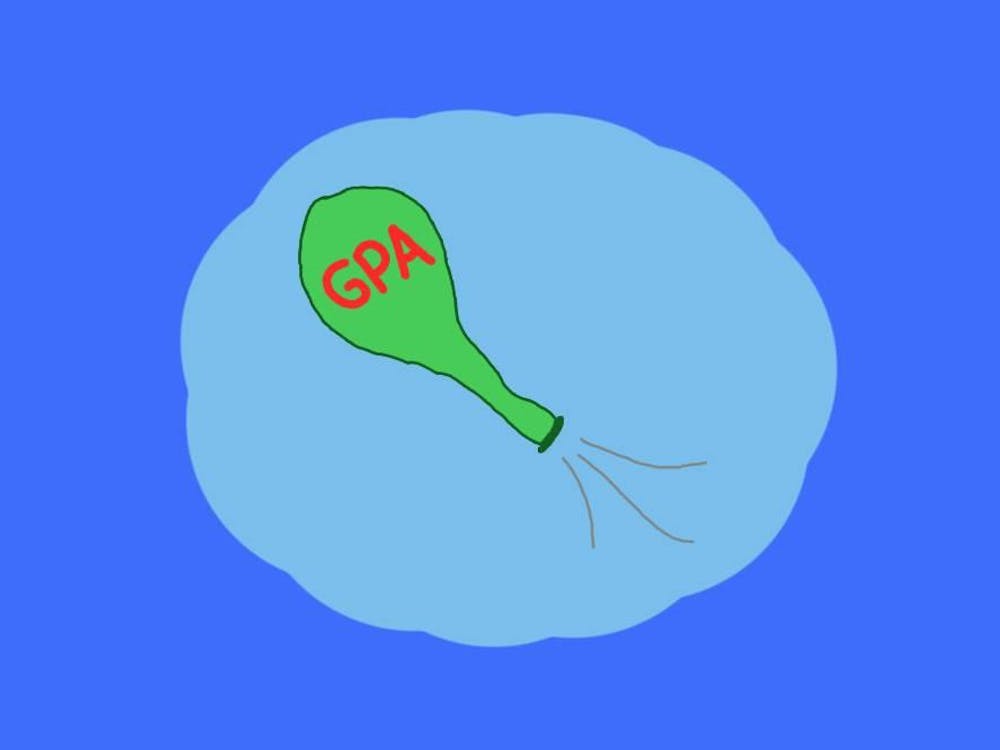LAST YEAR, I witnessed a crime being committed. It wasn't your typical crime, nor did it happen in your typical criminal setting. It didn't happen in a dark alley or along an abandoned stretch of road, but rather in the midst of a 1,000 bright-eyed and bushy-tailed teens, anxiously waiting for the beginning of another Friday night football game.
The clock dipped below the two-minute mark; a voice came over the PA system - "Will you please rise for the singing of the national anthem." We stood; we sang. The song ended and as I bent to sit down, the voice bellowed again - "Please bow your heads for a moment of prayer." Uh-oh.
As the law currently stands, it is illegal to lead public prayers at any government-supported school function, such as classes, assemblies and sporting events, except for graduation. According to the U.S. Court of Appeals for the 5th Circuit, graduation is of a "singularly serious nature," which justifies the inclusion of a prayer, so long as it is "nonsectarian" and "nonproselytizing." But a case currently before the Supreme Court challenges this interpretation, saying that the law infringes on First Amendment rights (Santa Fe Independent School District v. Doe).
The debate over prayer in public schools is ubiquitous, and brings out very strong sentiments on both sides of the issue. One camp maintains that disallowing students, teachers and administrators from leading others in prayer during school denies these individuals their constitutional right to free speech.
On the other side of the issue, partisans contend that by allowing prayer in schools the barrier that separates church from state - another constitutionally guaranteed right - is brought down. Once we allow prayer to become part of the curriculum, what's to stop religious dogma from being introduced as well, the argument goes.
The answer, quite frankly, is not much. In recent memory there have been numerous efforts by conservative religious groups to try to introduce religion into state-sponsored educational programs (vouchers to fund parochial and religion-based private schools, for example). So far, nearly all of these efforts have been ruled unconstitutional, as they rightly should have been. Religion has no place being officially included in public school life, nor is its exclusion a violation of an individual's right to free speech or the free practice of religion.
Restricting religious messages from being broadcast over the PA at the beginning of a football game is not the same thing as keeping a person from expressing their religious beliefs. More precisely, what guarantees individuals the right to express their religious beliefs is that institutional messages like school-sponsored prayers are illegal.
When someone steps behind a microphone to lead a group in a prayer, they no longer speak solely for themselves and express their own views, but rather speak on behalf of the institution. Think about it this way - if the school's principal says something in a public forum - even if he is just expressing his own opinion - he still is speaking for the school as a whole, as he is identified as its representative.
Along the same lines, if a school allows public prayer, it indirectly is endorsing the content of the prayer, which crosses the line of separation between church and state. Once that line has been crossed, any expression of beliefs that are different from those endorsed is effectively quashed, which not only denies an individual's religious freedom, but also can have devastating effects for the school community.
Individuals have the freedom to say whatever they choose, but when a person is speaking as a representative of a government institution, they do not; there is little difference between a school-sponsored prayer and an edict establishing state-sponsored religion.
This is not to say that religious groups can't practice on school campuses, just that they can't be given a public forum. If a student group wants to have a prayer meeting, or individuals want to distribute literature or engage in other faith-related activities, that's fine; but they can't be allowed to do it in an official, school-approved capacity.
(Rob Walker's column appears Fridays in The Cavalier Daily.)




